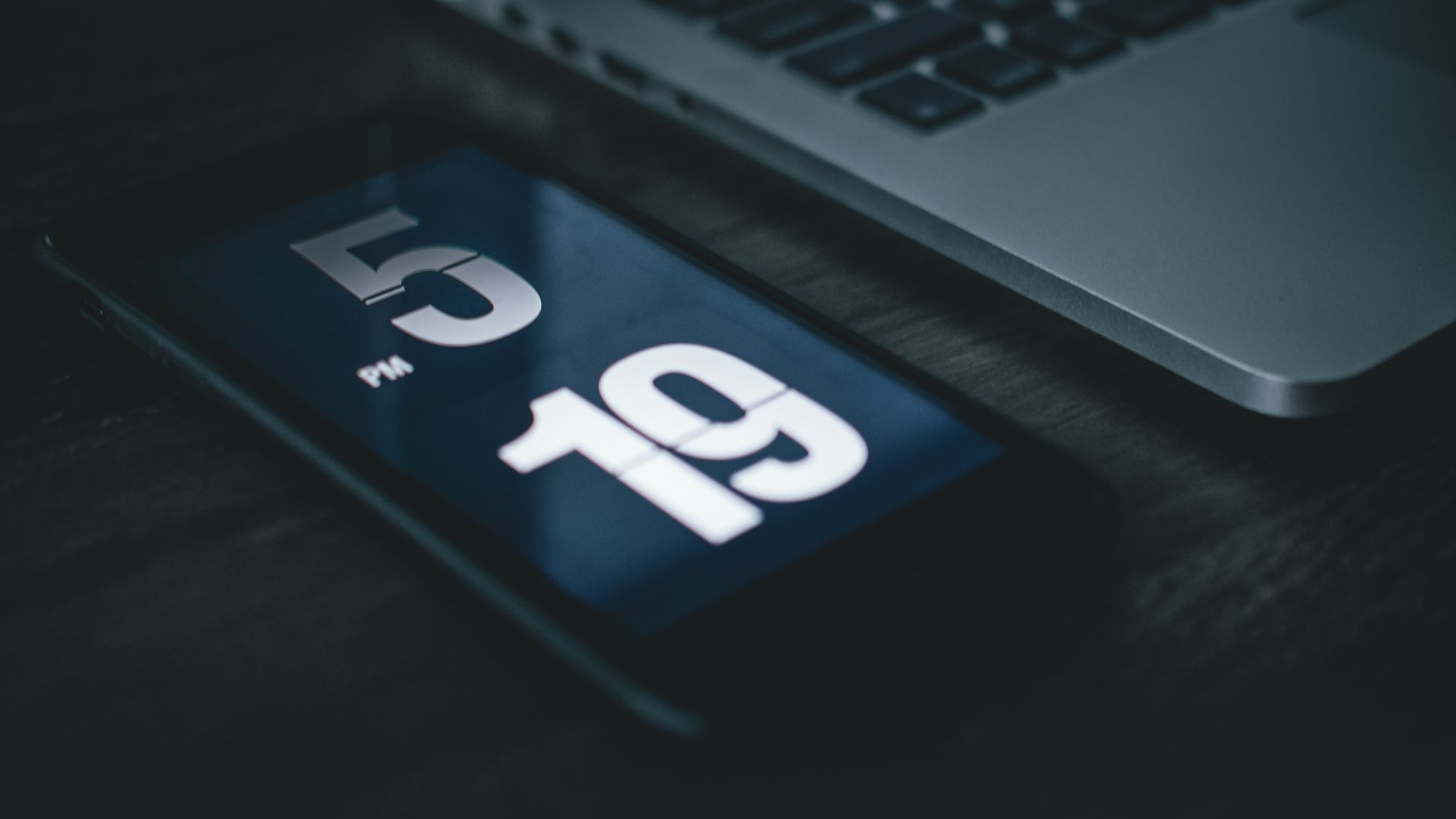Essentials
Podcasting Essentials
Related articles:
It’s a burning question that we see a lot in the podcast community: "When should I be publishing my episode?" Publishing a new episode is always a big deal, and you want to make sure it goes live at a time that will work for your listener base, with (hopefully!) the added bonus of drawing in a few new listeners as well.
So what’s the secret? Should you post weekly? Every ninth day? At 11:11 am, or only when the moon is full? In short, there’s no one right answer. Ultimately, it’s going to depend on your content and your listeners. However, there are several questions you can ask yourself to help determine a good publishing schedule for your individual content. Read on to learn more.
Does your show have timely content?
This is an important one. If your show recaps ongoing TV shows or comments on current events, you want your episodes to go live as soon as possible after the event happens that you’re covering.
As Addy notes, "Many successful TV fandom shows publish initial reactions right after the episode–that might sound kind of crazy, but we're definitely seeing reaction episodes 1-2 hours after the show ends. I’ve been part of that world of fanbase podcasts, and let me tell you–the audience is there. In addition to that, for the complete episodes, publishing within two days works best. It’s fresh in everyone’s mind, they’re still excited, and they want to hear more. Anything after those two days is a little funny because it starts to get too close to the next new episode of the show."
And when a news story breaks, for example, people are going to be searching for information as soon as it happens–you want your podcast to be there for it. Maybe it takes you a few days to come up with a really polished, well-written episode on a timely current event. That’s fine, but understand that people move on fast!
Where does your audience live?
It can be hard to know exactly where your audience is located, but it is definitely worth learning what you can about your audience. If you live in America but have a lot of Korean listeners, do a little research into time zones. Make an effort to publish your content at a time that’s convenient for the bulk of your listeners. If you post new material when it’s the middle of the night in Korea, a lot of your listeners might never see that new episode.
This doesn’t only apply internationally, either. The time zone difference between California and Maine is enough that a few hours’ posting difference might mean introducing a new episode when everyone’s busy at work verses posting when they’re home for the evening, looking for a way to unwind.
Who’s the competition?
If you publish a podcast on a subject that occupies a crowded space on the podcast market, or if there are a lot of other podcasts covering similar material—true crime or real life mysteries might fall under this category—check out your competitor’s posting schedules.
It’s generally a good idea to avoid posting around the same time as other podcasts who cover similar content, especially if they are more well-known than you are. Your material will stand out more when it’s not jostling for attention with other shows in the same genre.
What does your audience say?
If your posting schedule is wide open and it doesn’t make any difference to you personally, ask your listeners. One of the great things about podcasts is the ability to interact with your audience, and they will respect you more if they see you as someone who cares about their input and opinions.
Ask your audience when, or how often, they’d like to see content from you. Their input can be a big help when it comes to creating your podcast schedule; hearing what they have to say will give you a better understanding of the people you’re communicating with.
As Aaron Dowd notes, "It is important to think about your listeners and their habits when scheduling a release time for an episode. What about publishing an episode on the weekend? Your subscribers might be more likely to check it out then, since they have more free time for listening to podcasts. In the end, I think it’s important to know who you’re trying to reach and what their daily or weekly listening habits are, and consider how your episodes can fit into their lifestyle." So ask!
Can you stay consistent?
While all of these factors have value, the most important element of all is probably consistency. When you have a set schedule and post every time you say you’re going to post, you’ll develop a loyal listener base. They’ll be able to know exactly when they can listen to new material, and, hopefully, they’ll start incorporating your podcast into their own schedules as well.
On the other hand, no matter how great your content might be, having an unpredictable posting schedule can make it hard for listeners. Without a set schedule, it’s all too easy for your listeners to forget about that podcast they used to listen to, and to stop keeping track of your posts.
Espree: “Consistency is key. Podcast listeners like to listen to shows via their favorite app on their own timeline. Selecting a distribution day is most important. Having your show air consistently leads to a loyal following of listeners. Schedule your episodes to distribute early morning so your listeners can easily listen to your new release any time on your consistent day.“
What’s the difference between podcasting and TV?
Maybe you’re trying to weigh the pros and cons of keeping a regular posting schedule versus never, ever posting on the same day as another similar podcast. If you have a set schedule but have noted those days have become a little questionable, or you worry that no one will be listening to your podcast over the holidays, remember: podcasting (thankfully!) isn’t like live TV.
When you have an audience that knows and likes you content and is familiar with your posting schedule, they will make an effort to listen to episodes that they’ve missed. Podcasting isn’t like TV, where your audience can miss an episode and potentially never hear what you had to say that day. A good audience will backtrack and listen to your material, even if they didn’t catch it on the day it was released. At the end of the day, having a good relationship with your listeners makes for the most effective publishing schedule yet.
Want to learn more about podcast hosting? We got you. What about selling merch or doing your taxes? Still have questions? Check out these podcasting courses!

